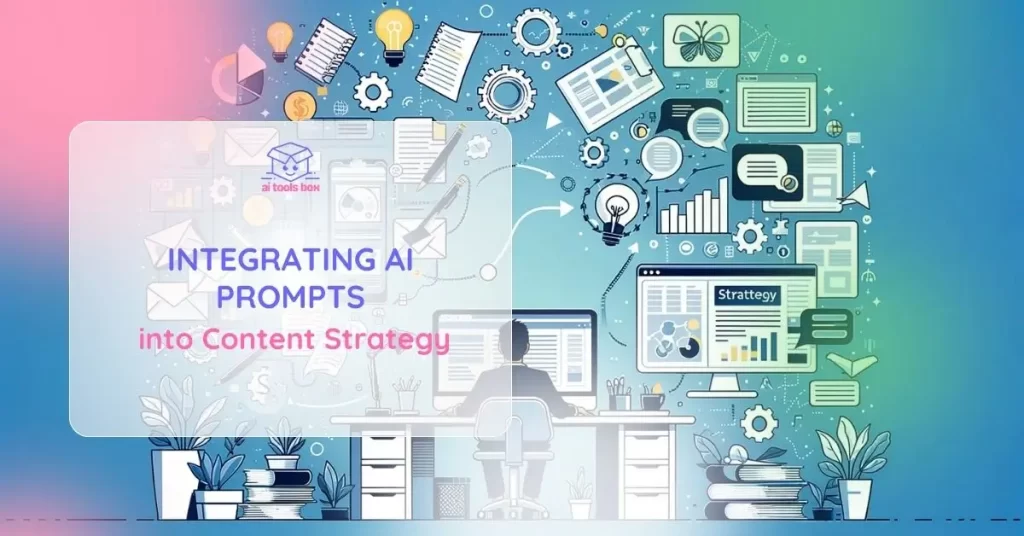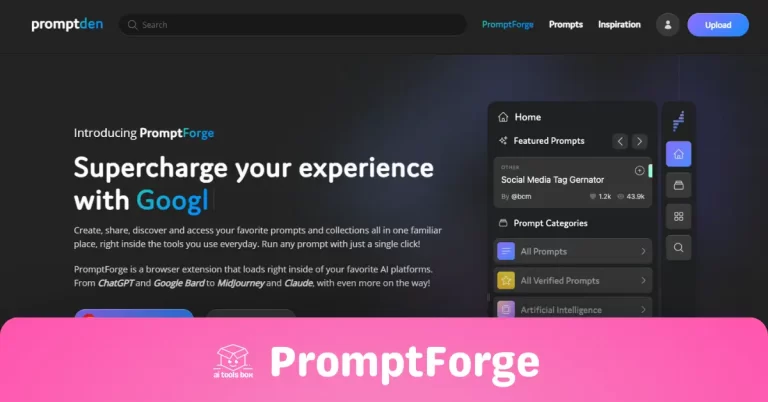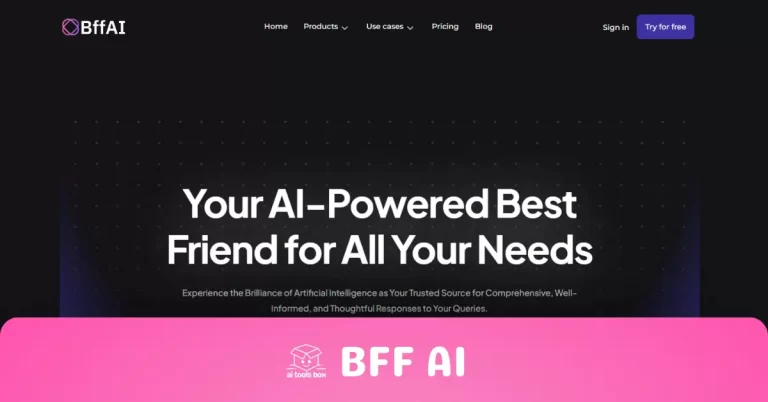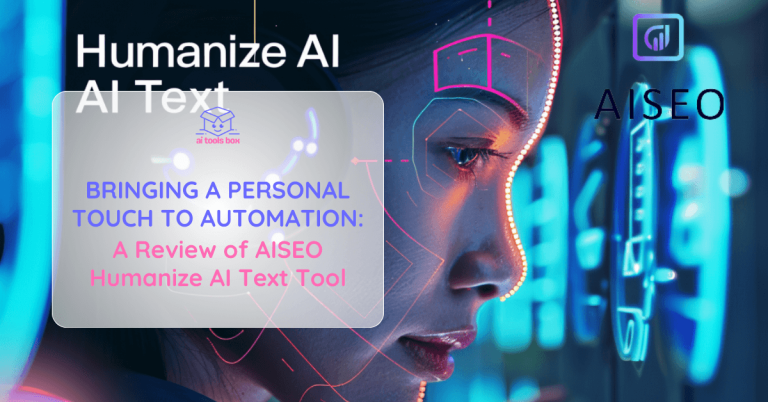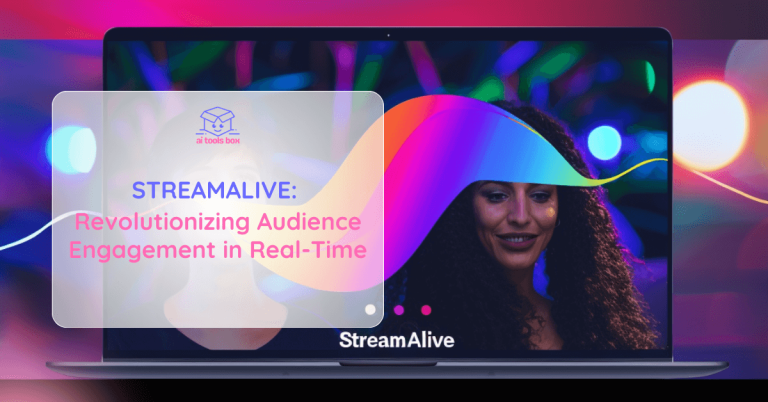In today's digital landscape, integrating artificial intelligence (AI) into your content strategy isn't just an option; it's a necessity for staying ahead. AI has revolutionized how content is planned, created, and distributed, offering unparalleled efficiency and insight.
If you're looking to enhance your content strategy with AI, you're in the right place. This article will demystify the process, making it accessible and actionable.
In this article, you will learn:
- The fundamentals of AI in content creation.
- Strategies for seamlessly integrating AI into your content planning.
- How AI can amplify your content's reach and engagement.
Prepare to embark on a transformative journey where AI becomes your ally in crafting compelling content.
The Evolution of Content Strategy: Embracing AI

Content strategy has undergone a transformative journey, evolving from mere keyword stuffing and basic SEO tactics to a sophisticated art form that intricately weaves audience needs with brand narrative. Historically, content strategy focused primarily on creating content that resonated with search engines, often at the expense of user engagement and quality. The goal was straightforward: to rank higher in search engine results pages. However, as digital landscapes matured and audience expectations grew, the approach shifted. The focus turned towards creating valuable, relevant, and consistent content aimed at attracting and retaining a clearly defined audience—ultimately driving profitable customer action.
AI is revolutionizing content planning and strategy
Enter artificial intelligence (AI), a technological leap that's reshaping content strategy in unprecedented ways. AI in content strategy is not just about automation or churning out content at scale; it's about intelligent content creation, predictive analytics, and personalized user experiences. AI tools are now capable of analyzing large sets of data to identify trends, predict user behavior, and even suggest content topics that are likely to perform well. This is a game-changer for content strategists, as it allows for data-driven decision-making, ensuring content not only resonates with the audience but also aligns perfectly with business objectives.
- Enhancing Personalization: AI algorithms can analyze user data to deliver personalized content recommendations, ensuring each user interaction is relevant and engaging.
- Streamlining Content Creation: With natural language processing (NLP) capabilities, AI can assist in creating content that's not only grammatically correct but also aligned with the brand's voice and tone.
- Optimizing Content Distribution: AI can predict the best times to publish and promote content, determining which platforms will yield the highest engagement rates.
- Improving SEO: Beyond keyword analysis, AI can understand search intent, helping strategists create content that addresses users' specific needs and questions.
As we continue to embrace AI in content strategy, it's crucial to view it as a partner in the creative process. AI's role is to augment human creativity, not replace it. It offers insights and efficiency, but the human touch in understanding nuances, emotions, and complex storytelling remains irreplaceable. The future of content strategy, therefore, lies in the synergy between human ingenuity and AI's analytical prowess, crafting content experiences that are not only found but felt.
Understanding AI and Its Capabilities in Content Creation
Artificial Intelligence (AI) prompts are inputs given to AI systems designed to generate content based on the data they have been trained on. These prompts can range from simple instructions, like “Write a blog post about the benefits of meditation,” to more complex and nuanced requests that require the AI to interpret and produce more sophisticated content. The AI then utilizes its understanding of a vast dataset to produce content that is relevant and, often, surprisingly insightful.
The capabilities of AI in content creation are rapidly expanding, making it a powerful tool in the arsenal of content creators, marketers, and strategists. Here are some notable capabilities and limitations:
Capabilities
- Efficiency and Scale: AI can generate content quickly and at scale, handling the heavy lifting that comes with producing large volumes of content.
- Data-Driven Insights: AI can analyze extensive datasets to identify trends, predict user behavior, and personalize content for different segments of the audience.
- SEO Optimization: AI tools are adept at identifying trending keywords and can help optimize content for search engines, ensuring better visibility and higher rankings.
- Language Proficiency: Modern AI systems, especially those trained on vast and diverse datasets, possess a high degree of language proficiency, allowing them to produce grammatically correct and contextually relevant content.
Limitations
- Lack of Deep Understanding: While AI can mimic understanding, it doesn't truly comprehend content in the way humans do. It lacks the ability to grasp deeper nuances, emotions, and complex concepts that are often essential in creating engaging content.
- Over-Reliance on Data: AI's output is only as good as its input. If the AI is trained on biased or limited data, the content it generates can be skewed, inaccurate, or even nonsensical.
- Creativity Constraints: AI can generate content based on existing data and trends, but it doesn't possess true creativity. It can't produce groundbreaking ideas or innovative concepts that haven't been seen before.
- Ethical and Moral Considerations: AI-generated content can raise ethical concerns, especially regarding authenticity, plagiarism, and the potential to spread misinformation.
Understanding these capabilities and limitations is crucial for effectively integrating AI into content creation. While AI can significantly augment the content creation process, it's important to remember that it serves best as a tool, not a replacement, for human creativity and insight. The optimal approach is a balanced one, leveraging AI's efficiency and data processing capabilities while ensuring that the final content is infused with the creativity, emotional intelligence, and ethical considerations that only humans can provide.
Strategies for Integrating AI Prompts into Content Planning

Incorporating AI into content planning is not just about automating the process; it's about enhancing the quality, relevance, and effectiveness of the content. Here are actionable strategies for integrating AI prompts into your content planning process, as well as tips for maintaining the crucial balance between AI efficiency and human creativity.
Utilize AI for Content Idea Generation
- AI-Powered Brainstorming: Use AI tools to generate content ideas based on trending topics, keyword research, and competitive analysis. This can help you discover hidden opportunities and generate ideas that resonate with your target audience.
- Predictive Analysis for Trend Spotting: Leverage AI's predictive capabilities to identify upcoming trends in your industry. Creating content around these trends can position your brand as a thought leader.
Enhance Content Personalization with AI
- Audience Segmentation: Use AI to segment your audience based on their behavior, preferences, and interaction history. This allows for the creation of tailored content that speaks directly to the needs and interests of different audience segments.
- Dynamic Content Customization: Implement AI systems that dynamically adjust the content displayed to a user based on their past interactions, increasing engagement and user satisfaction.
Optimize Content Scheduling and Distribution with AI
- Automated Scheduling: Utilize AI to determine the optimal times for publishing and promoting content. This ensures that your content reaches your audience when they are most active and engaged.
- Smart Distribution: Use AI to identify the most effective distribution channels for your content, whether it be social media, email, or other platforms. AI can also adjust your distribution strategy based on performance data.
Incorporate AI into the SEO Strategy
- AI-Driven Keyword Research: Use AI tools for advanced keyword research, identifying not just high-volume keywords but also long-tail phrases and questions your audience is asking.
- Content Optimization: Employ AI to optimize your content for search engines, ensuring it meets all the SEO best practices and ranks higher in search results.
Balancing AI-Generated Content with Human Creativity
While AI can significantly enhance the content planning process, it's crucial to maintain a balance with human creativity. Here's how:
- Maintain the Human Touch: Always review and edit AI-generated content to ensure it aligns with your brand voice and meets your quality standards. AI is a tool to assist, not a replacement for human judgment and creativity.
- Embrace AI as a Collaborative Partner: Use AI for the heavy lifting (data analysis, SEO optimization, etc.), but rely on human creativity for storytelling, emotional connection, and complex content creation.
- Ethical Considerations and Authenticity: Be transparent about the use of AI in your content creation process. Ensure that the content is authentic, ethically produced, and provides real value to your audience.
By strategically integrating AI into your content planning and maintaining the irreplaceable human element, you can create a content strategy that is not only efficient and data-driven but also genuinely engaging and impactful.
Benefits of AI Integration in Content Strategy

The integration of AI in content strategy doesn't just streamline operations; it revolutionizes them. By harnessing AI's capabilities, content strategists and marketers can supercharge their content's efficiency, consistency, and analytical depth, paving the way for more informed decisions and strategies.
Efficiency in Content Creation and Management
AI's ability to rapidly process and analyze data translates into a significant efficiency boost in content creation and management. Content teams can leverage AI to:
- Automate Routine Tasks: AI can automate repetitive tasks like keyword research, data collection, and even some aspects of content creation, allowing content creators to focus on more strategic and creative tasks.
- Optimize Content Scheduling: AI algorithms can analyze user engagement patterns and suggest optimal times for publishing content, ensuring maximum visibility and engagement.
Consistency Across Multiple Channels
Maintaining a consistent brand voice and message across various content channels can be challenging. AI aids in:
- Brand Voice Alignment: AI-driven tools can analyze your brand's existing content and learn your specific brand voice, helping to maintain consistency across all new content.
- Cross-Platform Consistency: AI can assist in adapting the core message for different platforms while retaining the central theme, ensuring a cohesive brand narrative.
Analytical Advantages: Informed Decisions and Strategies
AI's analytical capabilities are unmatched. They provide deep insights that can inform content strategies:
- Predictive Analysis: AI can predict trends and user behavior, allowing brands to stay ahead of the curve and create content that aligns with future demands.
- Performance Analysis: AI tools can dive deep into content performance metrics, offering granular insights on what works and what doesn't, thereby refining content strategy.
Enhancing SEO with AI
AI's role in SEO is transformative, with capabilities extending from keyword analysis to content optimization:
- SEO Optimization: AI tools can suggest relevant keywords, analyze the search intent, and even recommend content structures that are more likely to rank higher in search engine results.
- Content Relevance and Quality: AI can assess content quality and relevance, suggesting improvements that align with SEO best practices and user preferences.
Boosting Audience Engagement
Engaging a modern audience requires understanding their preferences and delivering content that resonates. AI makes this possible by:
- Personalized Content Recommendations: AI algorithms can analyze user behavior and preferences to suggest personalized content, enhancing user engagement and satisfaction.
- Engagement Analysis: AI can measure user engagement levels, providing insights into which types of content captivate the audience, helping to tailor future content accordingly.
Integrating AI into content strategy not only streamlines operations but also introduces a level of precision and personalization previously unattainable. As we move forward, the synergy between human creativity and AI's analytical prowess is set to redefine content strategy, making it more responsive, insightful, and impactful.
Challenges and Considerations
Integrating AI into your content strategy might seem like a straightforward task, but it's laced with challenges and ethical considerations that need to be navigated carefully. While the benefits are clear, it's essential to approach this integration with a strategy that acknowledges potential pitfalls and maintains the authenticity and brand voice that your audience values.
Potential Pitfalls of AI in Content Strategy
- Over-Dependence on AI: Relying too heavily on AI can lead to content that lacks the human touch, making it difficult for your audience to connect with your brand on a personal level.
- Quality Control Issues: AI-generated content can sometimes miss the mark in terms of relevance, accuracy, or quality, especially if not monitored and guided correctly.
- Loss of Authenticity: Your brand's voice and unique perspective are what set you apart. Overusing AI can dilute these, making your content feel generic and impersonal.
Ethical Considerations
- Transparency: Be upfront with your audience about the use of AI in your content creation process. This fosters trust and sets clear expectations.
- Data Privacy: Ensure that any AI tools you use comply with data protection regulations and respect user privacy.
- Bias and Fairness: AI models can inadvertently perpetuate biases present in their training data. It's crucial to be aware of this and take steps to minimize bias in AI-generated content.
Maintaining Authenticity and Brand Voice
- Set Clear Guidelines: Establish a clear set of guidelines for your AI tools that align with your brand's tone, style, and core messages.
- Human Oversight: Make sure that human editors evaluate and edit every piece of AI-generated content in order to maintain the integrity and authenticity of your brand voice.
- Balance and Integration: Find the right balance between AI-generated and human-created content. Use AI to handle routine, data-heavy tasks while relying on human creativity for storytelling and connecting with the audience on an emotional level.
By being mindful of these challenges and ethical considerations and by strategically integrating AI with a human touch, you can leverage the power of AI in your content strategy without compromising on quality or losing your brand's unique voice.
As we close the chapter on this comprehensive exploration of integrating AI into content strategy, it's evident that the journey with AI in content creation is just beginning. The potential for AI to revolutionize content strategy is immense, but it's a path that requires careful navigation, continuous learning, and adaptation.
Next Steps on Your AI Integration Journey

Now that you are equipped with insights into the benefits and challenges of integrating AI into your content strategy, the natural progression is to deepen your understanding and practical application of AI tools. Here are two proactive steps you can consider:
- Explore Advanced AI Content Tools: Dive deeper into the world of AI content creation by experimenting with advanced tools. Each tool offers unique features and capabilities that can enhance your content strategy in different ways. By exploring these tools, you can find the perfect fit for your specific needs and further refine your content to engage and convert your audience.
- Attend Workshops on AI in Content Strategy: Knowledge is power, especially in a field as dynamic as AI. You can connect with like-minded people and gain access to cutting-edge knowledge and practical techniques by attending workshops and seminars conducted by industry experts. These learning opportunities will not only broaden your understanding but also keep you at the forefront of AI advancements in content strategy.
Embracing AI in content strategy is a transformative journey. As you embark on this path, remember that the blend of AI's analytical prowess and human creativity will be the cornerstone of innovative and impactful content strategies. Keep exploring, learning, and adapting, and you'll pave the way for a future where AI and human ingenuity create content that resonates, engages, and inspires.
